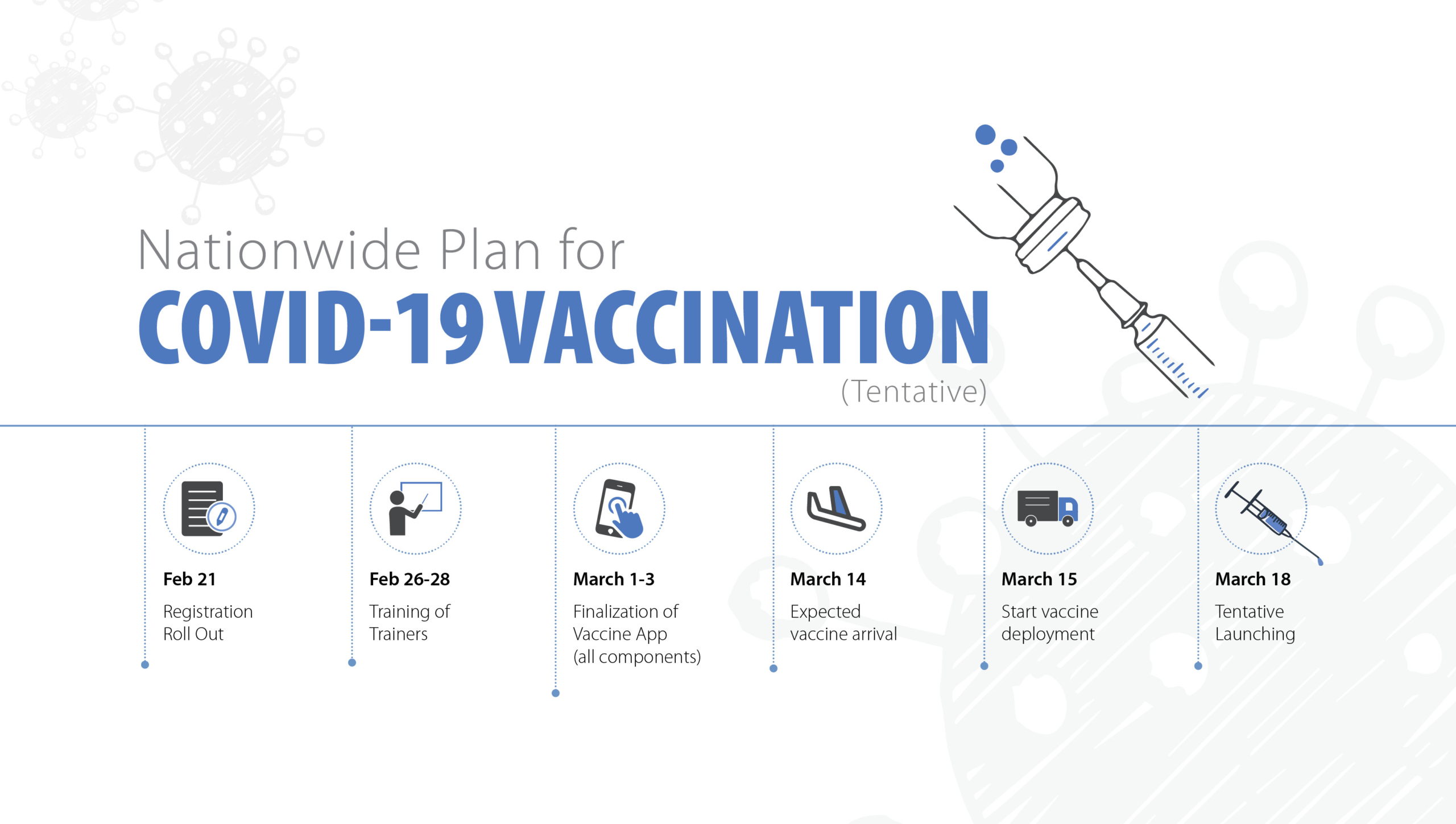400,000 additional doses of Covishield vaccine to arrive by Mid-March
Younten Tshedup
The highly anticipated Covid-19 vaccination programme could begin from March 18, Kuensel learnt.
The week-long nationwide vaccination programme would be conducted in a campaign mode (within a specific duration) with the likely closure of schools and institutions, including a possible restriction of inter-dzongkhag movement during the week.
This, according to Sowai Lyonpo (health minister) Dechen Wangmo was to get maximum coverage. “This is our request and the proposition has been tabled for now. So, when we have the vaccines, this recommendation probably might come from the Prime Minister’s Office.”

Lyonpo said that the ministry began planning the vaccination strategy six months ago, exploring the country’s cold storage capacity and transportation mediums to reach the vaccines across the country. She said that awareness programmes for the public were already underway.
The minister said that a specific date to start the vaccination programme was not decided yet, adding that the date would be contingent upon the arrival of the additional vaccines.
“The moment we receive the vaccine, we feel that we should be able to roll it out within two to three days.”
Bhutan received 150,000 doses of Covishield vaccine (Oxford-AstraZeneca) from India last month. However, the government’s plan to administer the vaccine to the entire eligible population (533,000) would require another 383,000 doses.
Chidrel Lyonpo (foreign minister) Dr Tandi Dorji said that the government was expecting some 400,000 more doses of Covishield vaccine from India in the second week of March.
Kuensel learnt that the additional doses are expected to arrive by March 14 and the deployment of the vaccines to the rest of the country would begin the next day. Three days later, on March 18, the vaccination campaign would then begin.
The vaccination strategy
The health ministry’s strategy is categorised in two stages. In the preparatory stage, registration for the vaccine and other logistical arrangements would be conducted. The nationwide vaccination programme would rollout for all the eligible population in the second stage.
In line with the strategy, on February 21, the health ministry launched the online registration portal to allow registration for people above the age of 15. As of yesterday afternoon, over 63,000 people had registered on the portal.
Lyonpo Dechen Wangmo said that for those in the rural areas without access to the online portal, the Prime Minister’s Office and the local government would facilitate registration.
To vaccinate the entire eligible population, the country would require around 953 vaccinators (those who would administer the jab). Lyonpo said that the country currently had 2,400 vaccinators.
On storage, Lyonpo said that the country had a capacity to accommodate about 900,000 doses of the vaccine. She added that in the event of emergencies, helicopters would be used to deliver vaccines.
She said that respective dzongkhags and thromdes would be tasked to identify schools, institutions and other centres as the vaccination stations. Observation rooms will also be identified where individuals after getting the jab would be observed for about 30 minutes for any possible adverse reactions.
To enhance the ministry’s preparedness, a training of trainers for the health workers to monitor any adverse reactions and possible side effects will begin next month.
Prime Minister Dr Lotay Tshering said that there was no reason to worry.
“Covid-19 vaccine is no different from other vaccines, which the health ministry has been giving for decades. In fact, it is one of the easiest vaccines to be administered,” he said. “We are preparing because we want to administer the vaccines within a week, and not because it is a different vaccine.”
Lyonchhen also assured that the vaccine was safe. “It’s been more than a month since Covid-19 vaccination started globally, vaccinating over 100 million people. No major risks have been reported so far.”
Sowai Lyonpo said that the reason the government decided on mass vaccination over its initial plan to administer the vaccines in phases was to get the maximum advantage.
She said that because the AstraZeneca vaccine had an efficacy rate of 70 percent, in order to achieve herd immunity, it was wise to vaccinate the entire eligible population at a time. “By getting vaccinated, you are not only protecting yourself but the whole community. This way we can form a protective shield around us.”
Meanwhile, Chidrel Lyonpo Dr Tandi Dorji said that the second dose of the vaccine, which is recommended two to three months after the first dose, would be made available towards the end of May.
For this, Lyonpo said that India had agreed to support some 550,000 doses of Covishield vaccine. “On top of this, we are also expecting around 108,000 doses of AstraZeneca and some 5,000 doses of Pfizer vaccines from the COVAX Facility.”
Lyonpo added that the government had also reached out to the Pfizer vaccine producers to procure around thousand doses of the vaccine. “The Pfizer vaccine can be used for those who are aged 16 and above compared to AstraZeneca, which is recommended for those aged 18 and above.”

